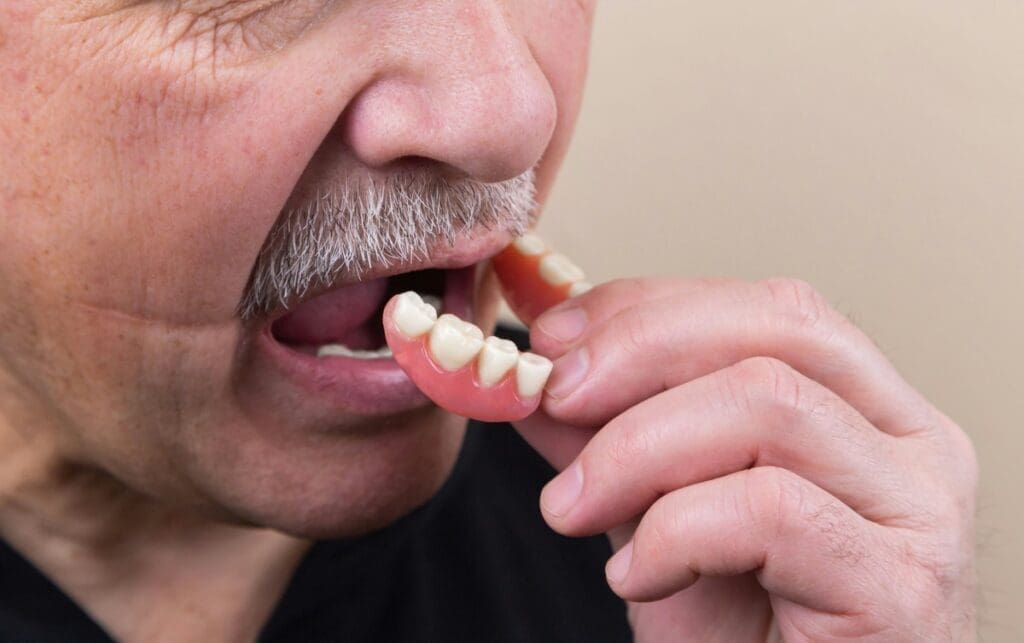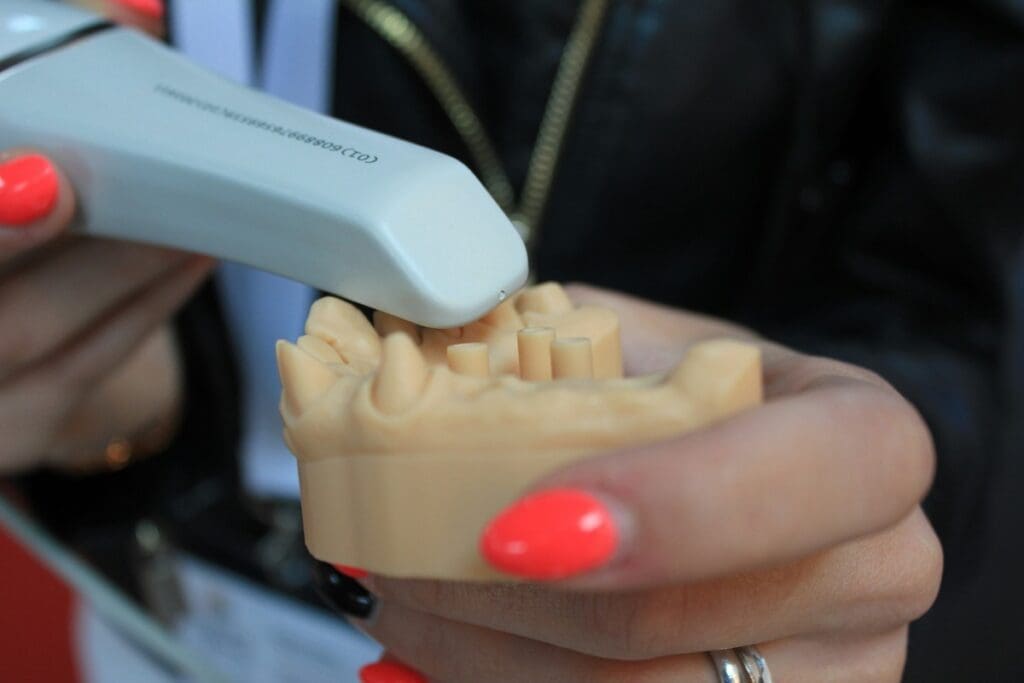
Replacing missing teeth is not just about aesthetics—it’s crucial for maintaining overall oral health and functionality. Missing teeth can lead to a cascade of issues, including shifting of adjacent teeth, changes in bite pressure, and even loss of jawbone density over time. This can affect how you chew and speak, and potentially lead to further dental problems.
For those wary of implants—whether due to cost, dental anxiety, or medical conditions—there are effective alternatives. Non-implant solutions like bridges, dentures, and partials offer versatility and can be less invasive, providing a practical option for many individuals seeking to restore their smile and dental health. These alternatives are designed to blend seamlessly with natural teeth, ensuring comfort and enhancing oral function without the need for surgical intervention.
Table of Contents
What are the options available to fix missing teeth without implants?
When it comes to fixing missing teeth without opting for dental implants, there are several practical and accessible options available:
Dental Bridges: These are popular for bridging the gap created by one or more missing teeth. A bridge is anchored to neighboring teeth and can be customized to match the natural color of your existing teeth, providing a seamless look.
Partial Dentures: Ideal for those missing a few teeth, partial dentures are removable appliances that hold replacement teeth. They are less invasive and can be an economical choice.
Full Dentures: For those missing most or all of their teeth, full dentures can restore functionality and appearance. Today’s dentures are more comfortable and natural-looking than ever before.
Resin-Bonded Bridges: Also known as Maryland bridges, these are minimal and require less alteration of the adjacent teeth. They are often used for front teeth and can be a conservative alternative to traditional bridges.
Each of these options offers different benefits, and the best choice depends on individual needs, dental health, and budget considerations. Consulting with a dentist is crucial to determine which solution aligns best with your personal circumstances and goals for dental health.
What are Dental Bridges?
Dental bridges are prosthetic devices used to replace one or more missing teeth. They bridge the gap created when teeth are lost, with anchoring teeth known as abutments on either side of the gap. The replacement tooth, called a pontic, is attached to crowns that cover the abutments.
Types of Dental Bridges:
- Traditional Bridges: The most common type, involving a pontic that is held in place by dental crowns cemented to the abutment teeth.
- Cantilever Bridges: Similar to traditional bridges but the pontic is supported by a crown on only one side instead of both sides.
- Maryland Bridges: Less invasive, involving a pontic that is held in place by a metal or porcelain framework. This framework is bonded onto the backs of the two adjacent teeth.
Pros and Cons Compared to Implants:
- Advantages:
- Non-surgical Option: Dental bridges don’t require surgery, making them a less invasive option than implants.
- Cost-Effective: Generally, bridges are less expensive upfront compared to the cost of implants.
- Quicker Process: The process of getting bridges is typically faster, often taking only a few weeks.
- Disadvantages:
- Durability: While durable, bridges typically don’t last as long as implants and may need replacement or repair.
- Tooth Preparation: To fit a bridge, the adjacent teeth must be filed down, which can weaken these otherwise healthy teeth.
- Aesthetic and Functional Concerns: Bridges may not have as natural an appearance or function compared to implants, especially over time as gums and bones recede.
Bridges offer a significant benefit for those looking for a quicker, less invasive, and more cost-effective solution than implants. However, the decision should involve consideration of long-term oral health, durability, and personal dental needs.

What are Partial Dentures?
Partial dentures are a practical solution for replacing one or more missing teeth when some natural teeth remain. These removable appliances are custom-fitted to the gums and existing teeth, helping to restore the function and appearance of a complete smile.
Benefits and Drawbacks
- Affordability: Partial dentures are generally more cost-effective than implants, making them accessible to a wider range of patients.
- Adaptability: They can be adjusted to changes in your dental structure over time.
- Drawbacks: While convenient, partial dentures can feel less stable than permanent solutions and require some getting used to.
Maintenance and Care
- Cleaning: It’s crucial to clean your dentures daily using a soft-bristle brush and non-abrasive cleaner to avoid damage.
- Storage: When not in use, keep them in water or a denture solution to maintain their shape.
- Regular Checkups: Visit your dentist regularly to ensure a proper fit and make any necessary adjustments.
Proper care and maintenance will extend the life of your partial dentures and help keep your mouth healthy. Despite some challenges, they remain a valued option for many due to their cost-effectiveness and adaptability.
What are Full Dentures?
Full dentures are designed for individuals who have lost all their natural teeth in one or both jaws. These removable prosthetics are custom-crafted to fit comfortably over the gums, effectively restoring both function and aesthetics to the mouth.
Advantages Over Implants
- Cost-Effectiveness: Full dentures are generally more affordable than dental implants, making them accessible to a broader range of patients.
- Non-Surgical: Unlike implants, dentures do not require surgical procedures, which can be a deciding factor for many, especially those with health concerns that complicate surgery.
Challenges with Full Dentures
- Fit and Comfort: Dentures may require adjustments over time as the jawbone changes shape.
- Maintenance: They require diligent care, including nightly removal and cleaning to prevent infections and ensure longevity.
- Dietary Restrictions: Some wearers may find it challenging to eat certain hard or sticky foods.
Despite these challenges, full dentures remain a popular choice for complete tooth replacement, offering significant benefits in terms of cost and convenience. Regular check-ups and good hygiene practices can help mitigate most issues associated with dentures, making them a viable option for many.
What are Resin-Bonded Bridges (Maryland Bridges)?
Resin-bonded bridges, commonly known as Maryland bridges, are a type of dental bridge that uses a metal or porcelain framework bonded onto the back of adjacent teeth. Unlike traditional bridges, Maryland bridges require minimal alteration of the surrounding teeth, preserving more of the natural tooth structure.
Unique Aspects of Resin-Bonded Bridges
- Conservative Approach: They involve less preparation and are considered a conservative alternative to conventional bridges.
- Aesthetic Benefits: Ideal for front teeth due to their less invasive nature and ability to blend seamlessly with natural teeth.
Ideal Candidates and Lifespan of Maryland Bridges
- Candidates: Best suited for people who have missing teeth at the front of their mouth where the biting forces are lighter. It’s also an excellent option for those who prefer a less invasive solution.
- Lifespan: While not as long-lasting as traditional bridges or implants, with proper care, Maryland bridges can last many years. Their longevity can be influenced by the placement location and the patient’s dental hygiene practices.
Maryland bridges offer an effective, less invasive solution for replacing front teeth, preserving more of your natural tooth structure while still providing a durable and aesthetically pleasing result. Regular dental check-ups are essential to ensure the longevity of the bridge and overall oral health.
What is a Flipper Tooth?
A flipper tooth is a removable partial denture that dentists often use as a temporary replacement for one or more missing teeth. It’s called a “flipper” because it can be flipped in and out of position with ease. Made from acrylic, this type of denture fills in the gaps in your smile while you wait for a more permanent solution.
Pros of Flipper Tooth
- Immediate Solution: Flippers are typically quick to create and can be used immediately after tooth extraction, providing a fast cosmetic fix.
- Affordability: They are generally less expensive than other types of dental prosthetics like bridges or implants.
- Non-Invasive: No surgery is required to fit a flipper tooth, making it a less invasive option.
Cons of Flipper Tooth
- Fragility: Being made of acrylic, flipper teeth are not as durable as other types of dental replacements and can break easily if not handled carefully.
- Discomfort and Fit Issues: Some users find flippers uncomfortable, especially if worn for extended periods, and they can sometimes fit poorly if not adjusted correctly.
- Oral Health Impact: Long-term use without proper care can lead to issues such as bone loss or gum disease.
5 Common Question People Ask about How to Fix Missing Teeth Without Implants
What are some alternatives to dental implants for missing teeth?
Alternatives include dental bridges, removable partial dentures, full dentures, and resin-bonded bridges (Maryland bridges), each suitable for different scenarios and patient needs.
Can a dental bridge be a good option for replacing missing teeth?
Yes, dental bridges are effective for replacing one or more missing teeth by anchoring artificial teeth between existing natural teeth or crowns.
Are dentures comfortable and how well do they function compared to implants?
Modern dentures are designed to be comfortable and functional, though they may not offer the same level of stability as implants. Adjustments and proper fitting can improve comfort and usability.
What is a resin-bonded bridge, and who should consider it?
Care involves daily cleaning with a soft brush and denture cleaner, soaking overnight in a denture solution, and regular check-ups for adjustments.
